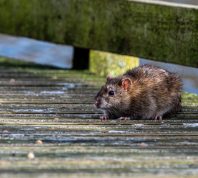23 Things Our Parents Did That We Could Never Do Today
Helicopter parenting looks good comparatively.
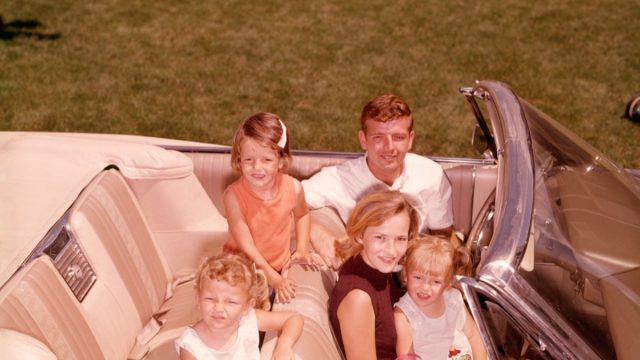
Ask any parent and they'll tell you that doing the right thing for their kids isn't always as easy as it sounds. With new parenting trends, changing regulations, and the price of everything from clothing to food skyrocketing, it's not always easy to know what's best for your little ones.
However, the vast majority of contemporary parents can pat themselves on the back for at least one thing: They're no longer abiding by the questionable—even dangerous—advice parents were following just a few decades ago. Read on to discover some once-standard parenting choices that we would never think of doing today.
1
Letting kids ride in the car unrestrained
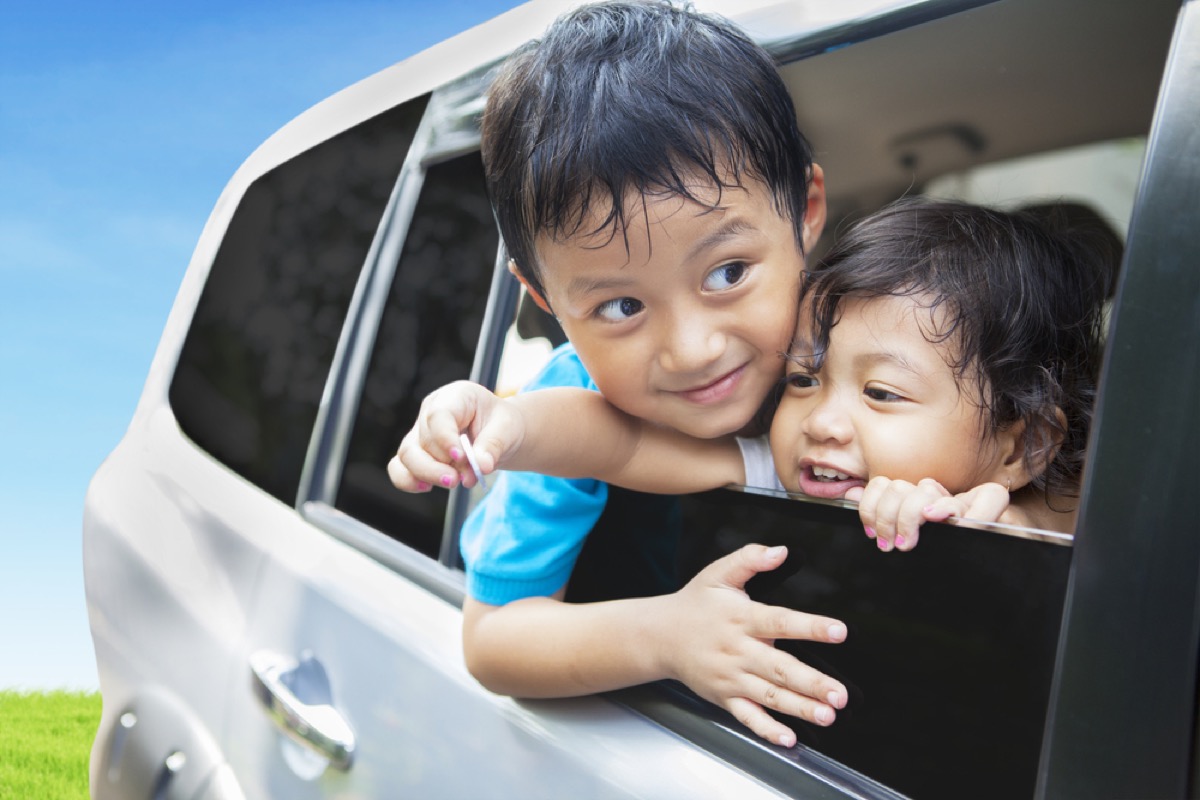
Today's car seats are so sturdy and well-armored, they could practically classify as tanks. But for many years, kids rode pretty much unrestrained in the car. In fact, it wasn't until 1985 that children were required to sit in car seats in the United States.
2
Smoking around kids
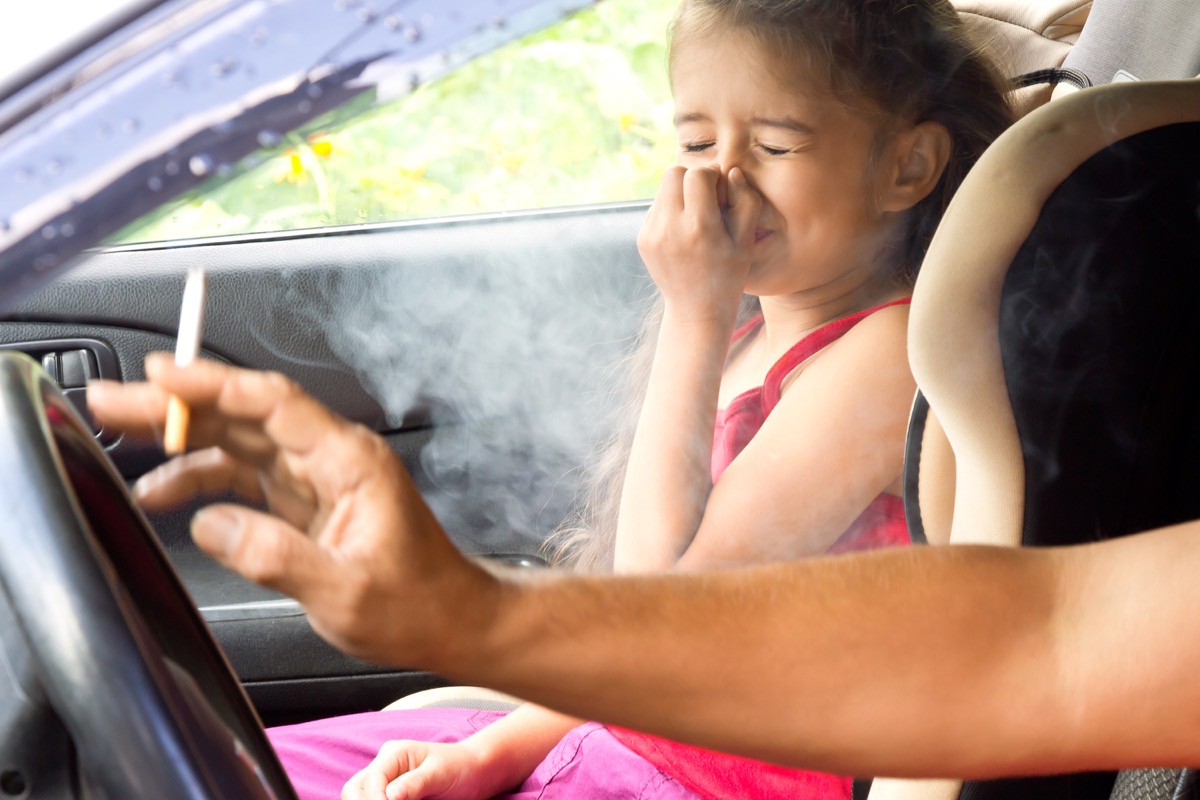
There are still countless contemporary parents who smoke around their kids, but the decision to do so is undeniably frowned upon. Just half a century ago, however, parents were happily puffing away in front of their kids—frequently indoors—without anyone batting an eye. According to Gallup, just 40 percent of adults knew there was a link between smoking and cancer back in 1954. And as recently as 1966, leading medical textbook Williams Obstetrics even suggested that pregnant women could safely smoke up to 10 cigarettes a day.
3
Biting children to keep them from biting others
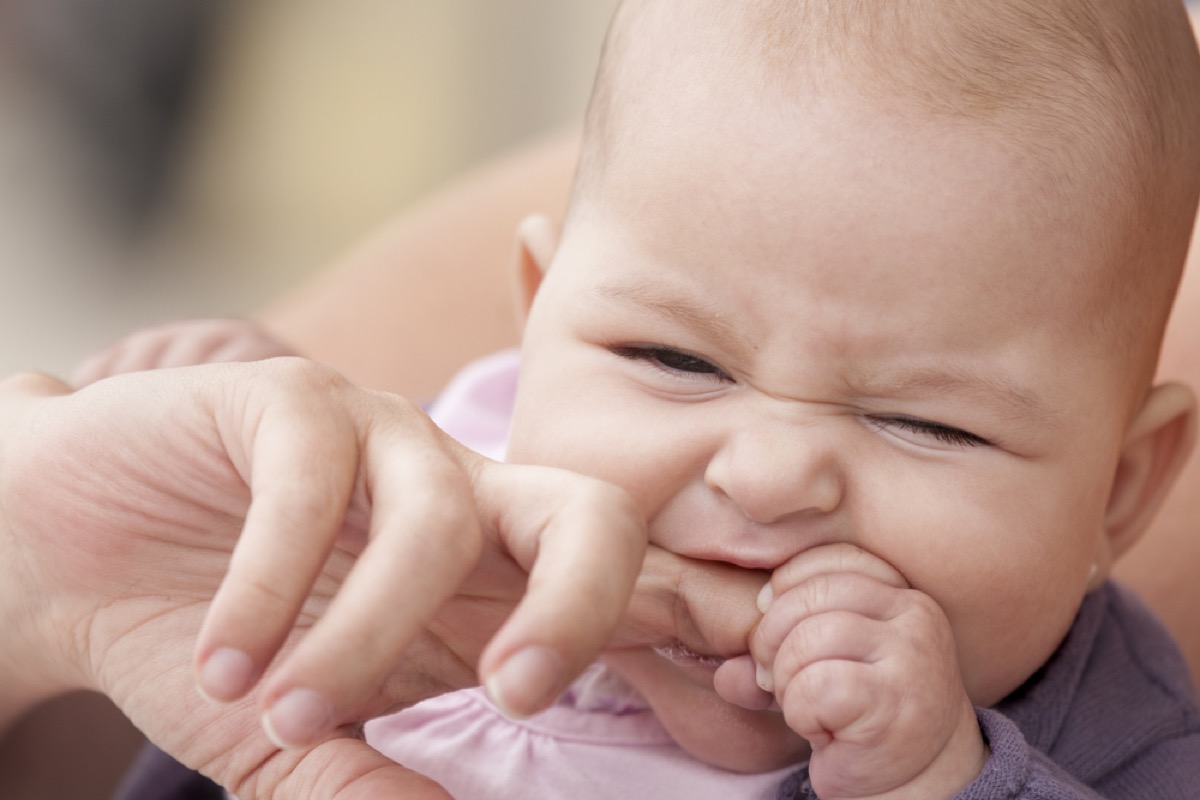
That "do as I say, not as I do" approach was big with some parents just a few decades ago, particularly in terms of discipline.
"My grandmother, and many others from some older generations, believe that when a child goes through a biting phase, the best way to nip it in the bud is to bite them back, and make sure it hurts," says Ann Kaplan, a parent coach and birth worker. "Most [parents] would be appalled (and I have it on good authority that it constitutes child abuse) … First of all, it's wrong. But also, it doesn't work!"
4
Giving babies soda
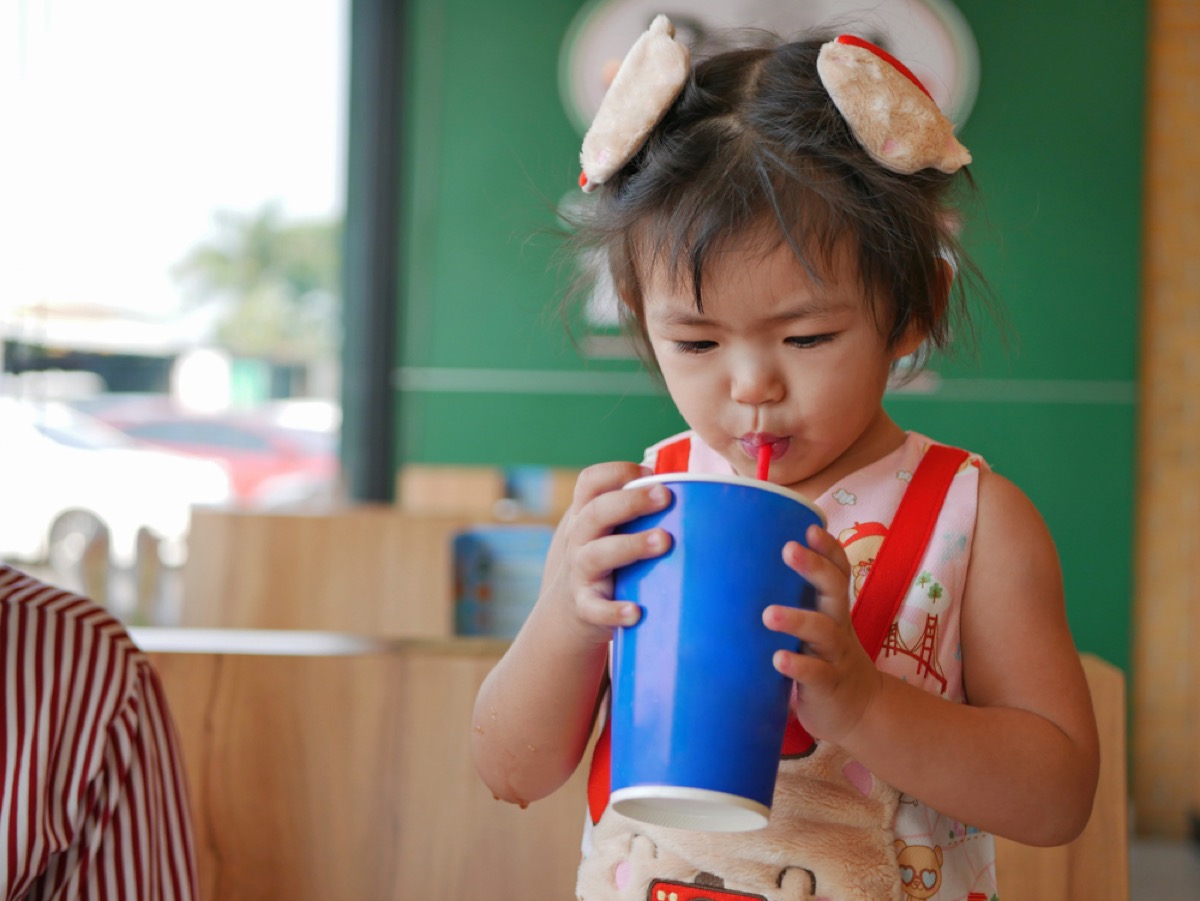
While parents today get to weigh the pros and cons of their local supermarket's organic baby food options, in the 1950s, 7Up was advertised as a healthy supplement to a baby's diet. "7Up is so pure, so wholesome, you can even give it to babies and feel good about it," read one ad, which also recommended the addition of 7Up to milk to entice toddlers to drink it.
5
Giving babies bourbon to help with teething pain
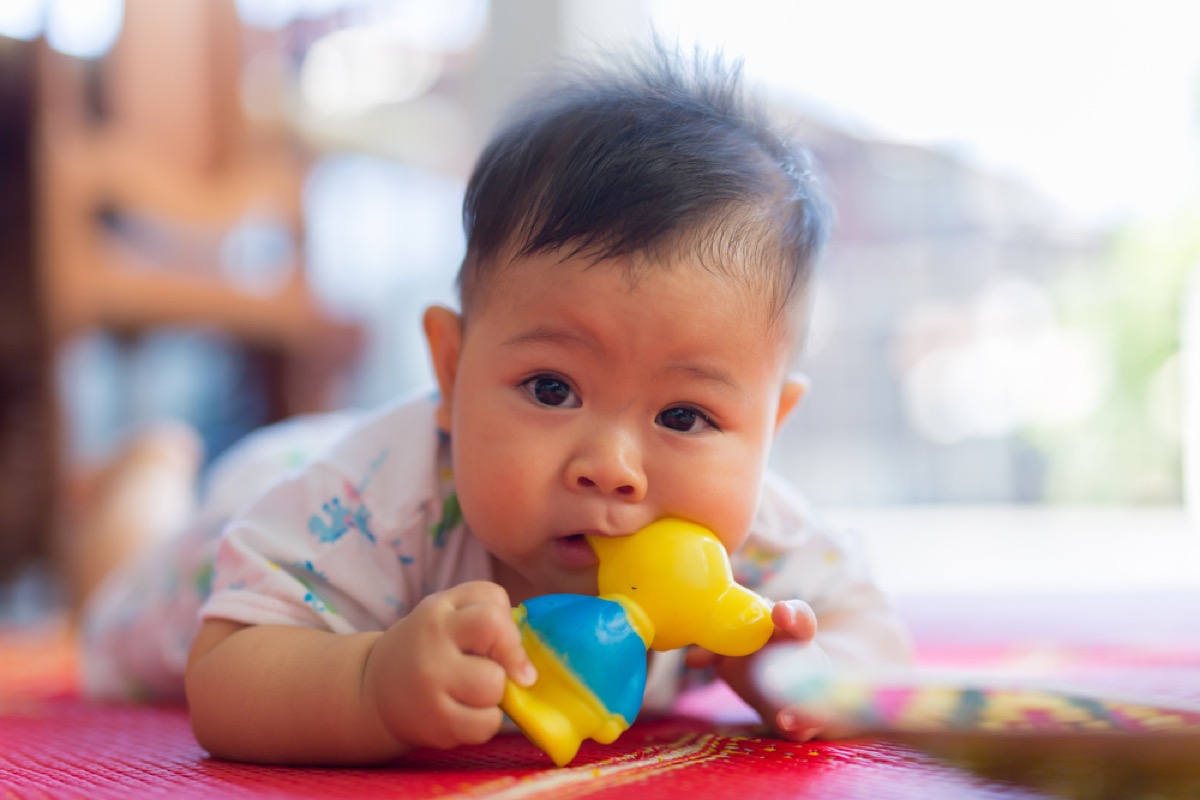
Long before there were teething toys and pain-relief products in every drugstore, parents gave their kids a less-than-kosher alternative: bourbon. Yes, for decades, parents would rub booze on their babies' gums to help them with teething pain.
In fact, the practice was so prevalent that people still do it today. In 2015, an Arkansas mother was charged with child endangerment for going one step further and putting bourbon in her 10-month-old's bottle in an attempt to help with the oral discomfort.
6
And giving kids alcohol to get them to sleep
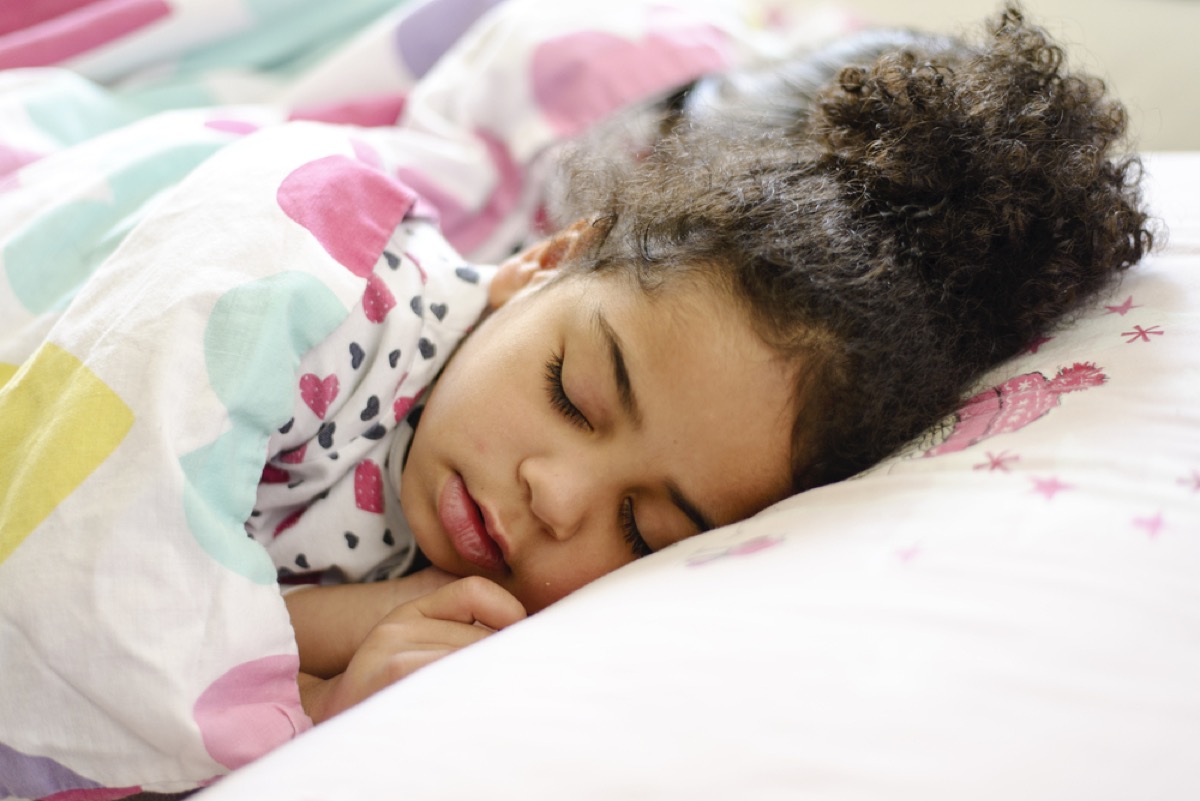
While a cuddle and a bedtime story may be standard sleep inducers for today's children, that wasn't always the case. In a 1920 text, psychiatrist Esther Harding, MD, wrote, "Hot toddy as a sleeping draught is good for infants and for the aged."
7
Allowing kids to take public transportation alone
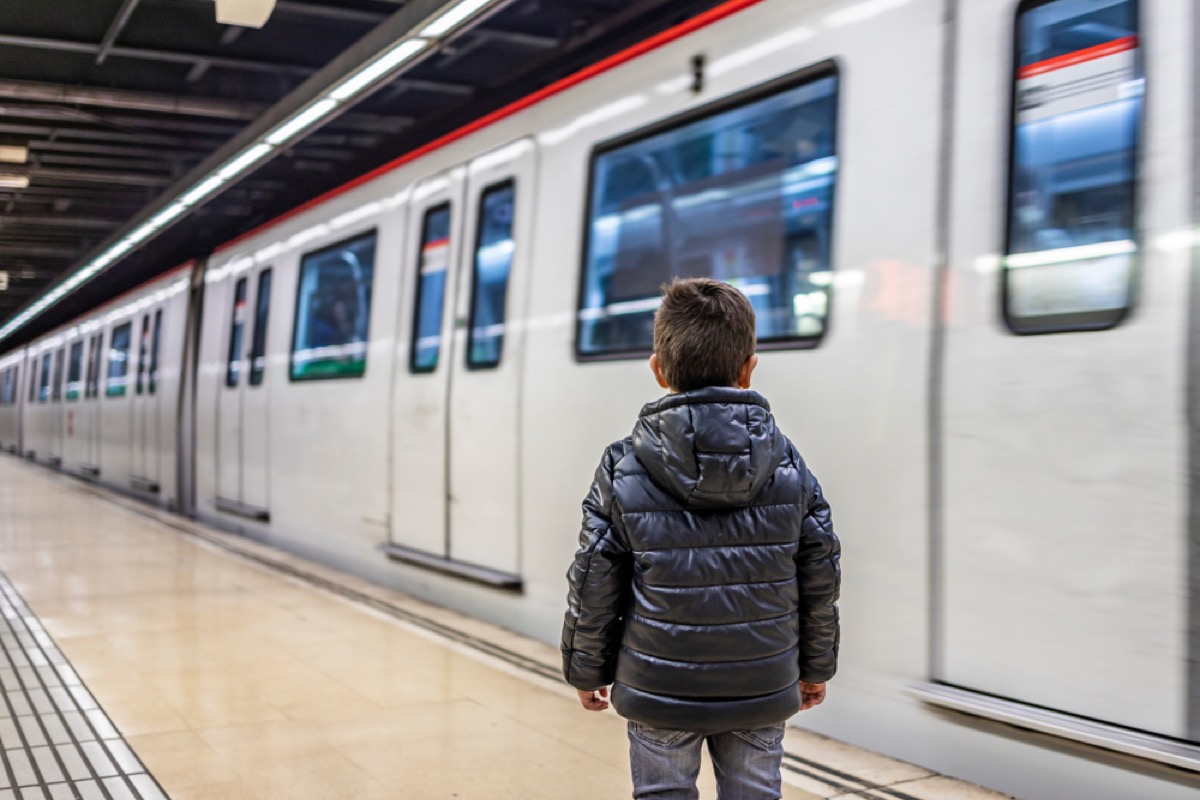
A few decades ago, it wasn't uncommon to see young children riding public transportation on their own. However, many parents today would be horrified by the idea of sending their child on a solo expedition on public transit.
"Parents today wouldn't think of letting their child take a bus or subway," says psychiatrist Carole Lieberman, MD, author of Lions and Tigers and Terrorists, Oh My! How to Protect Your Child in a Time of Terror. "Their child might get lost."
8
Letting kids cook alone

Today, you can buy childproofing devices for basically everything in your house, including your kitchen appliances. But a few decades ago, kids were not only allowed to use the stove, they were encouraged to do so.
In fact, according to the 1957 edition of Betty Crocker's Cook Book for Boys and Girls, every young cook should "start learning to do a few things well," suggesting children prepare recipes like hamburgers and angel food cake. "First thing you know you'll be getting a complete lunch or supper for your mother when she's very busy."
9
Feeding newborns full meals
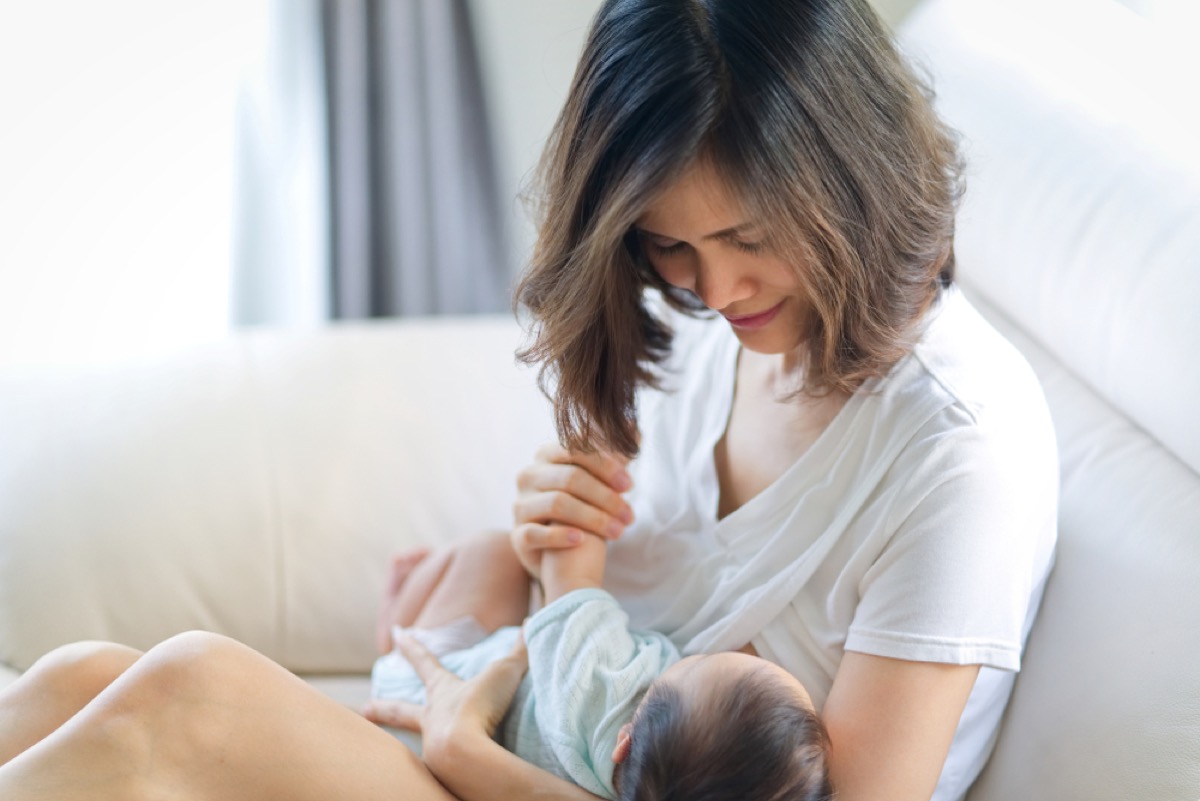
While the American Academy of Pediatrics recommends babies having only breastmilk or formula for the first six months of their lives, that wasn't always standard practice for parents.
In the 1962 Walter W. Sackett, MD, book Bringing Up Babies: A Family Doctor's Practical Approach to Child Care, Sackett recommends that children consume specially-prepared food before they even hit the one-month mark. Specifically, he suggested cereal at two to three days after birth, strained vegetables by day 10, and soup and meat by day 17. And if you want to keep your whole family healthy, this is The Secret to Raising Healthy Kids.
10
Letting infants cry for hours
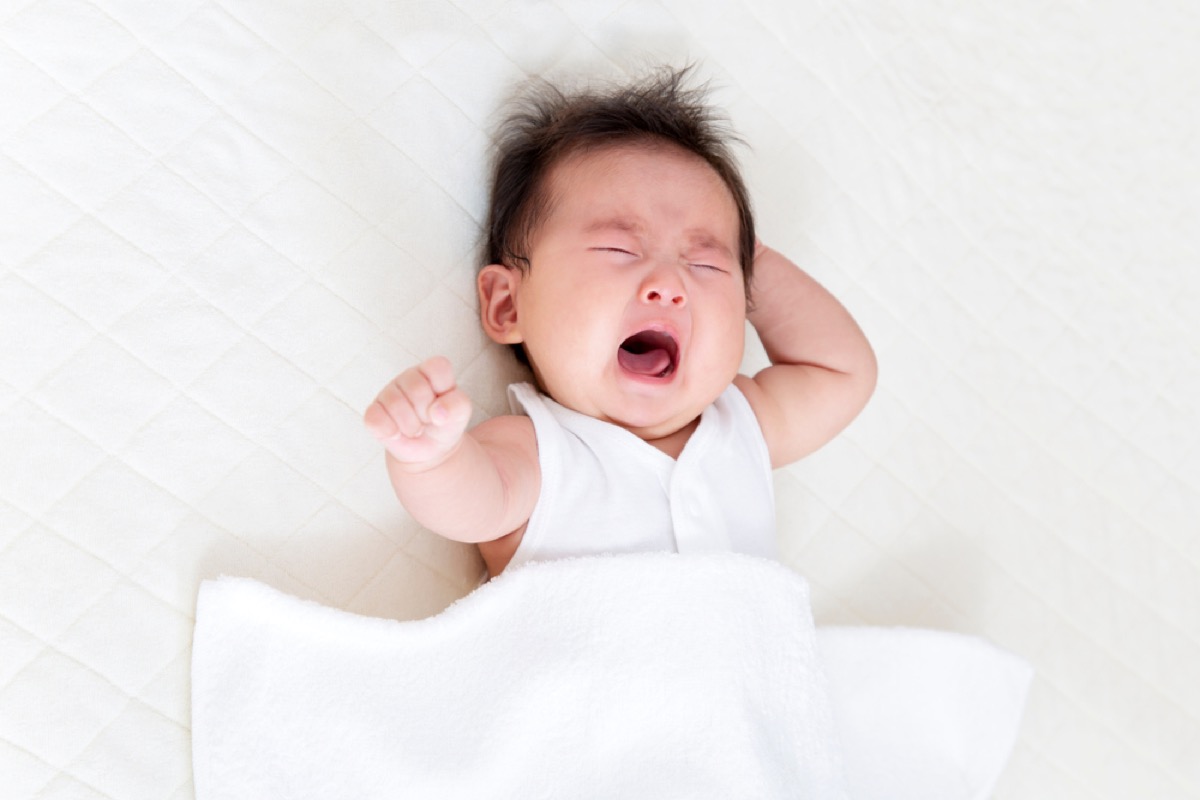
Contemporary parents certainly haven't completely stopped practicing the cry-it-out method for sleep training, but the idea of letting babies cry endlessly would horrify most modern moms and dads. However, back in the early part of the 20th century, letting your little one weep wasn't seen as either cruel or unusual. In fact, according to doctors William and Lena Sadler in their 1916 text The Mother and Her Child, "Crying is absolutely essential to the development of good strong lungs. A baby should cry vigorously several times each day."
11
Putting babies on their stomachs to sleep
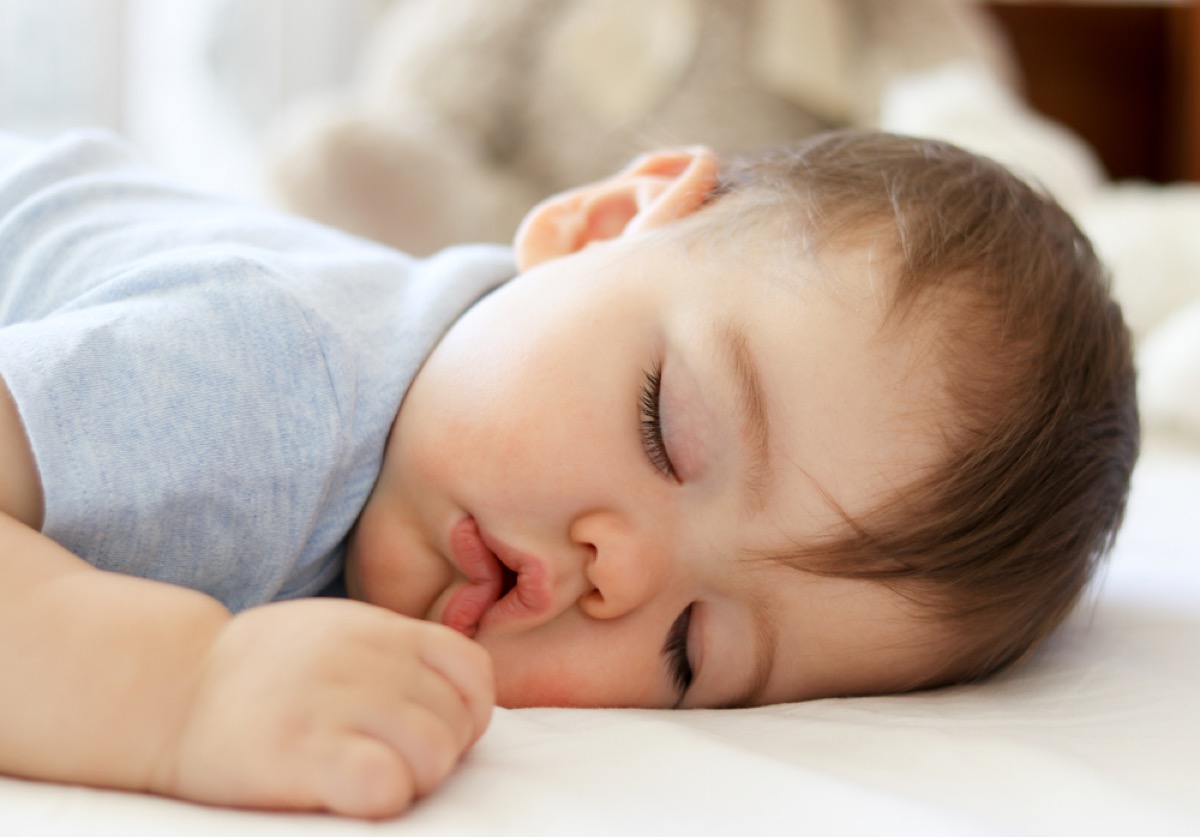
While putting babies to sleep on their stomachs was the norm for many decades—the thought being that babies wouldn't choke if they spit up—that idea is horrifying to many safe-sleep conscious parents today. In fact, since the introduction of the Back-to-Sleep campaign in 1994—which encouraged parents to have infants sleep on their backs—sudden infant death syndrome (SIDS) has been reduced by more than 50 percent.
12
Putting babies in questionable beds
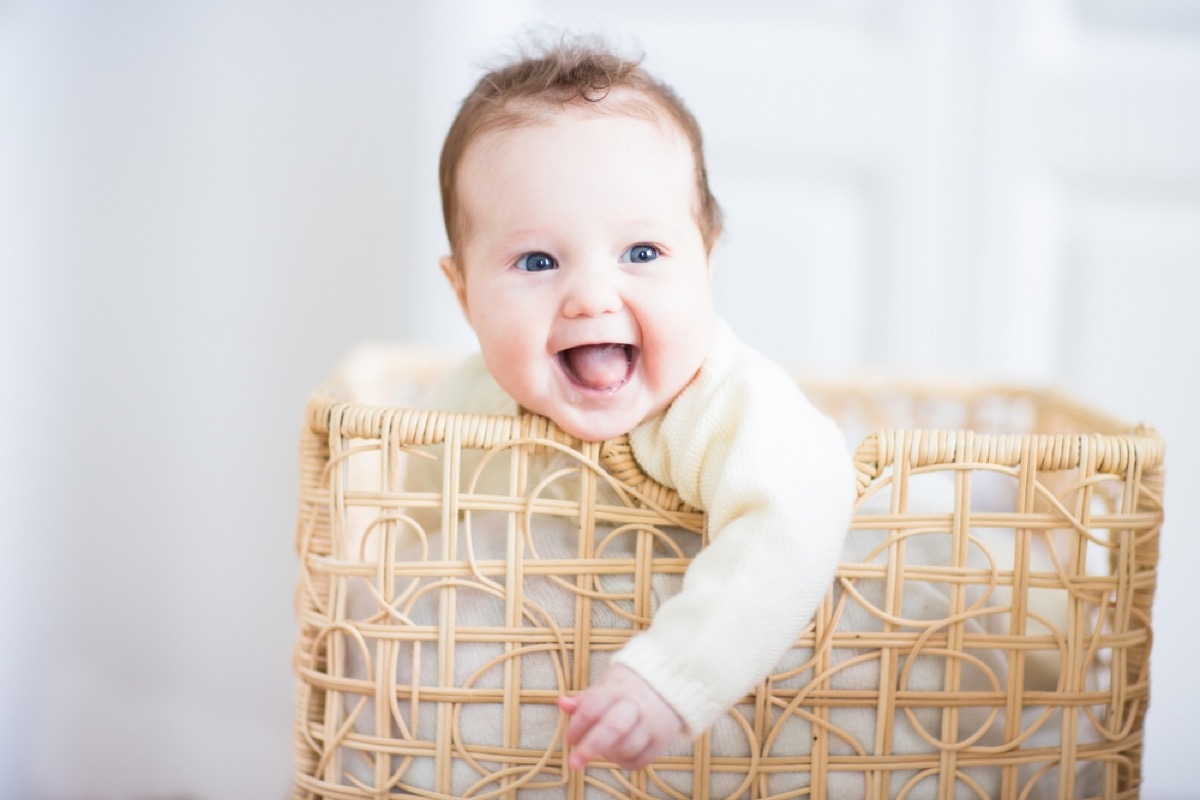
Today's recommendations for infant sleep are clear: Babies should be alone, on their backs, and in a crib or other safe sleep environment with a flat mattress and no pillows or covers.
In 1916, however, the consensus about safe sleep was quite different: "A most ideal bed may be made out of a clothes basket; the mattress or pad should come up to within two or three inches of the top, so the baby may breathe good fresh air," wrote the Sadlers.
13
Bathing babies in oil
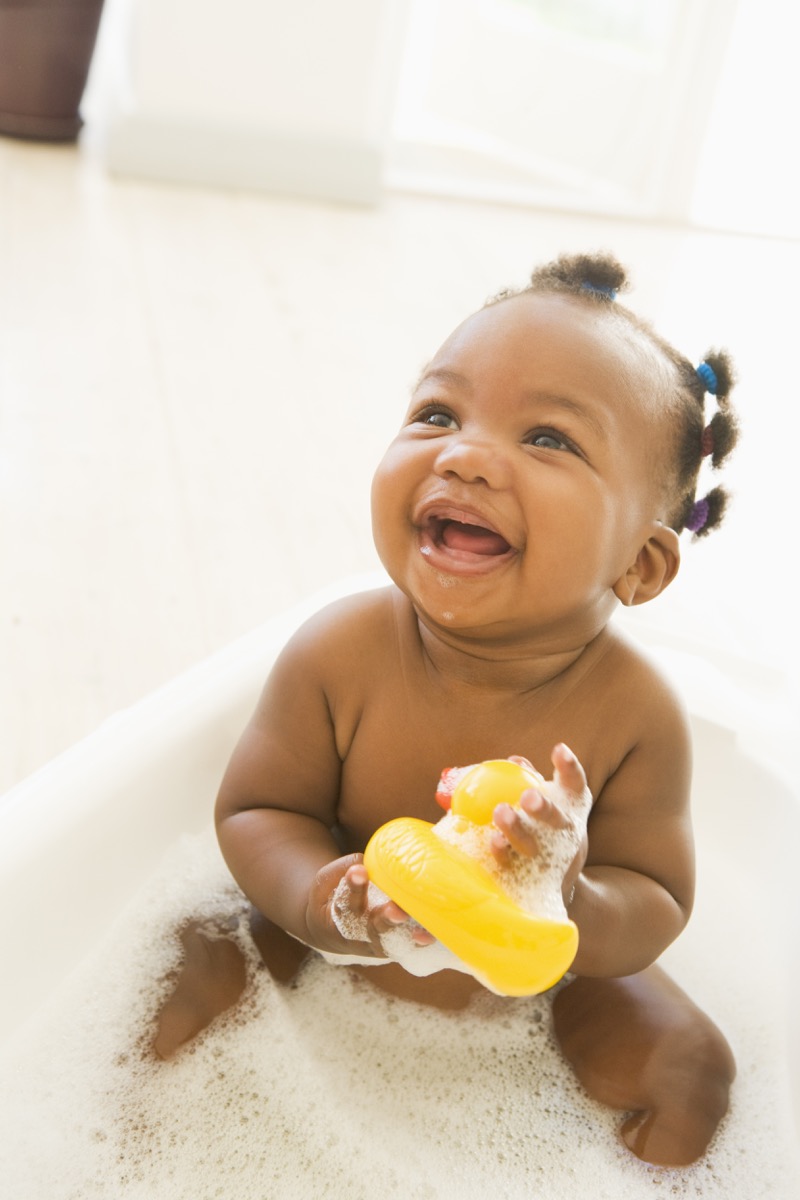
Soap and water? Who needs 'em? Back in 1916, the Sadlers recommended that parents give babies their first bath in oil instead. Directly after birth, "The baby is given its initial bath of oil. This oil may be lard, olive oil, sweet oil, or liquid Vaseline," write the doctors, noting that the bathing room must be 80 degrees Fahrenheit and that the solution should be later wiped off with an old linen towel.
14
Letting kids roam as they pleased
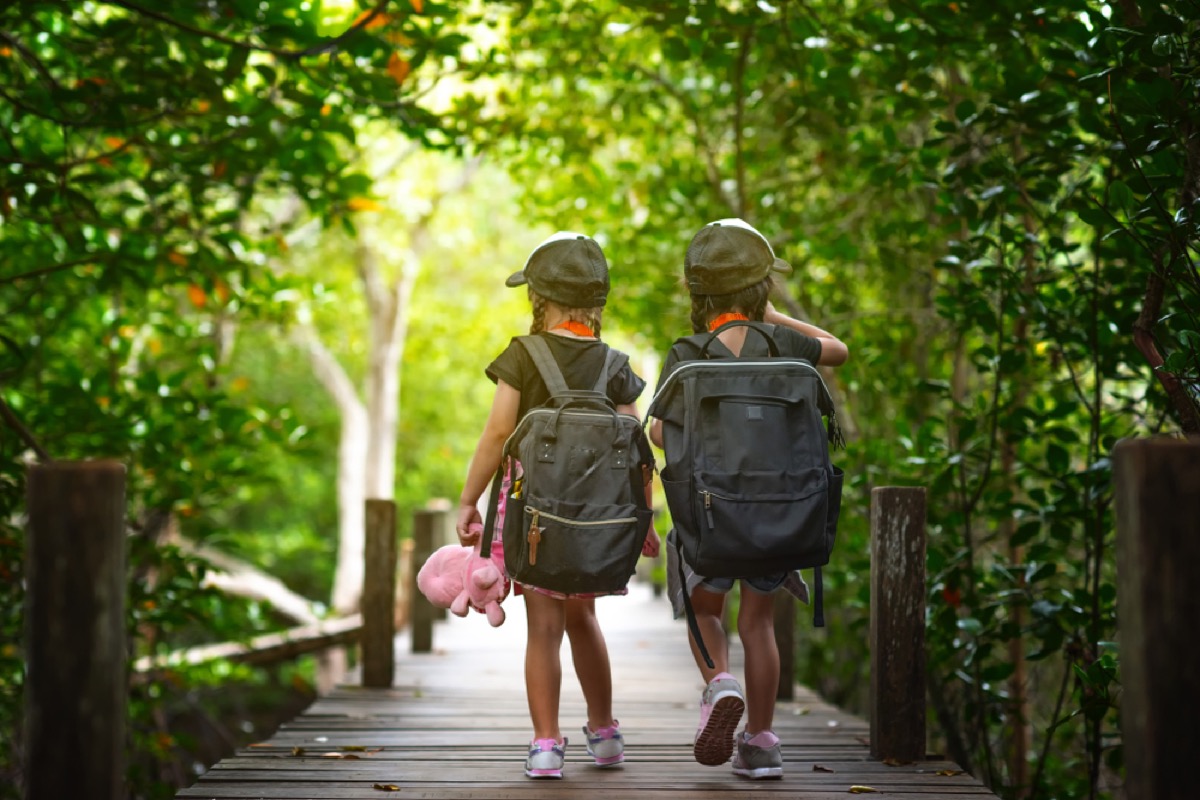
Fifty years ago, parents regularly practiced what would now be deemed "free-range parenting"—but without worrying that the cops might show up at their door about it.
"Parents had no fears about their children being molested or abducted. Every neighborhood was its own community," says Fern Weis, a parent coach and educator. "Living in 2019 is a completely different story, especially in the suburbs. People seeing children walking alone may call the police or children's services."
In fact, according to a 2014 survey conducted by Slate, among nearly 6,000 people polled, nearly 30 percent indicated that they could first walk over a mile to school alone in kindergarten or first grade. And more than 40 percent could do the same by second or third grade. By the 1990s, those numbers had shifted to fewer than five percent and just over 10 percent, respectively.
15
Letting kids stay home alone
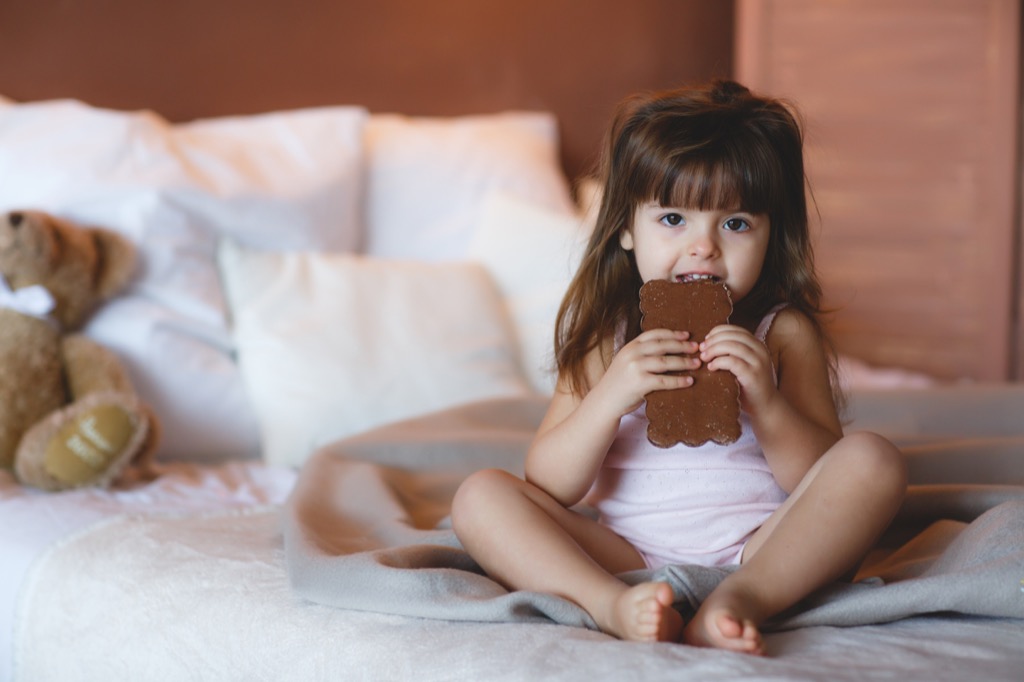
Going out for the evening? Just a few decades ago, instead of getting a babysitter, parents would frequently leave their kids to their own devices at home.
"I was a pretty responsible kid, and I do remember staying by myself while my mother was doing errands or my parents went out for the evening," says Weis. "I was probably about 10 at the time. Today, in many states, it is illegal to leave children alone under the age of 12."
16
Giving kids corn syrup for constipation
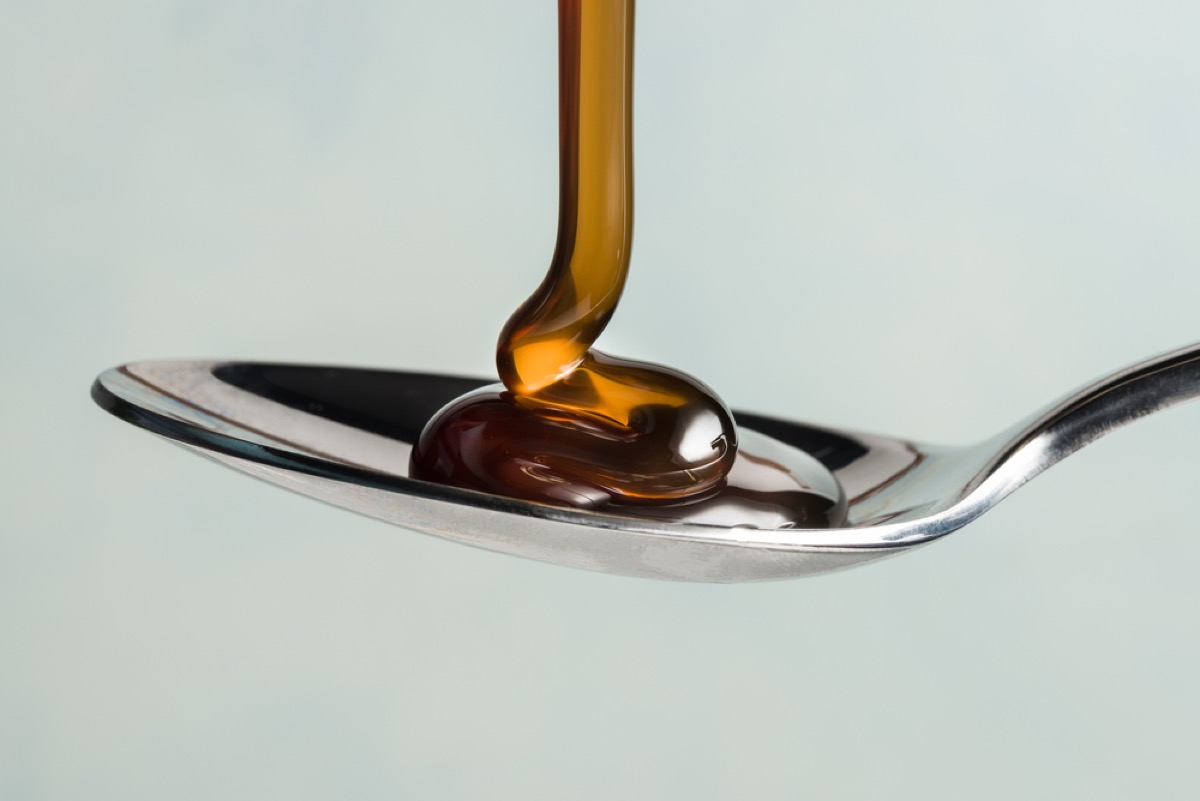
Today, a little water in their cup, some additional fiber, or a drugstore remedy might be suggested to treat a child's constipation. However, according to modern-day pediatrician Jay L. Hoecker, MD, years ago, dark corn syrup—the same stuff you use to make pecan pie—was the preferred remedy. (And for the record, he doesn't recommend it.)
17
Having sleepovers at homes they didn't vet first
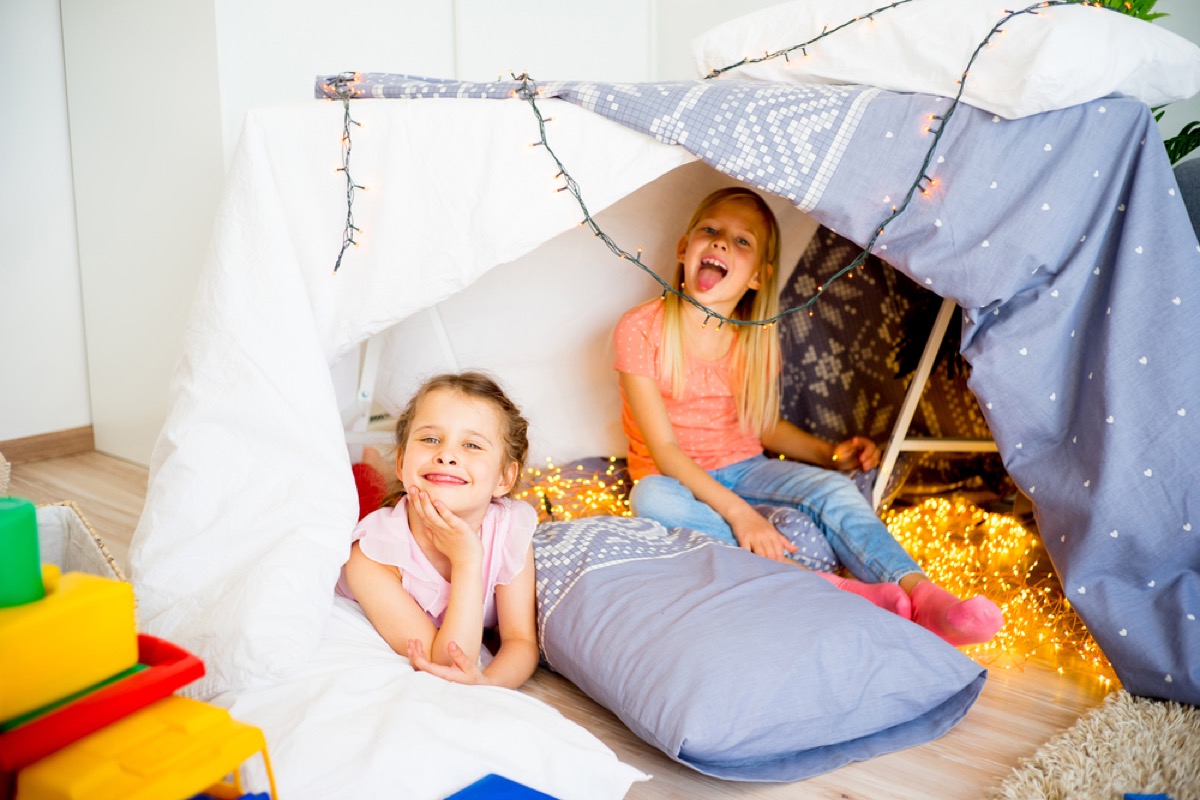
Sleeping over at a neighbor's house—whether or not your parents knew them well—used to be pretty common. But today, most moms and dads favor a more conservative approach. "Parents today wisely check out the family before letting their child sleep over at a friend's house," says Lieberman.
18
Sending kids to bed without supper
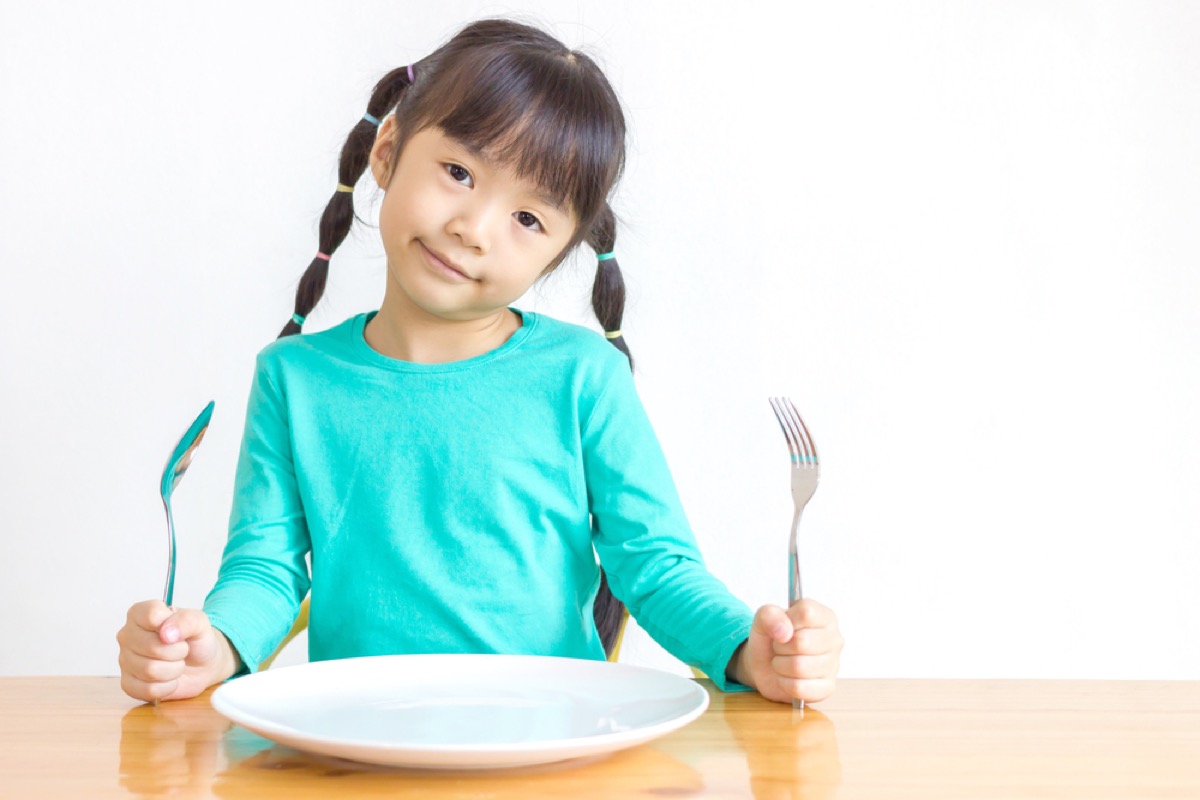
A common refrain among parents back in the day? "If you don't do X, you'll go to bed hungry!" However, many parents today would be horrified by this approach—and doing so might even cause more problems than solve them.
"Withholding food should not be a punishment, as some children have eating disorders," says John DeGarmo, Ph.D., founder of The Foster Care Institute and author of The Foster Care Survival Guide. "Instead, offer a variety of fruits and veggies for a child. If they chose not to eat, then that is okay."
19
Washing a kid's mouth out with soap
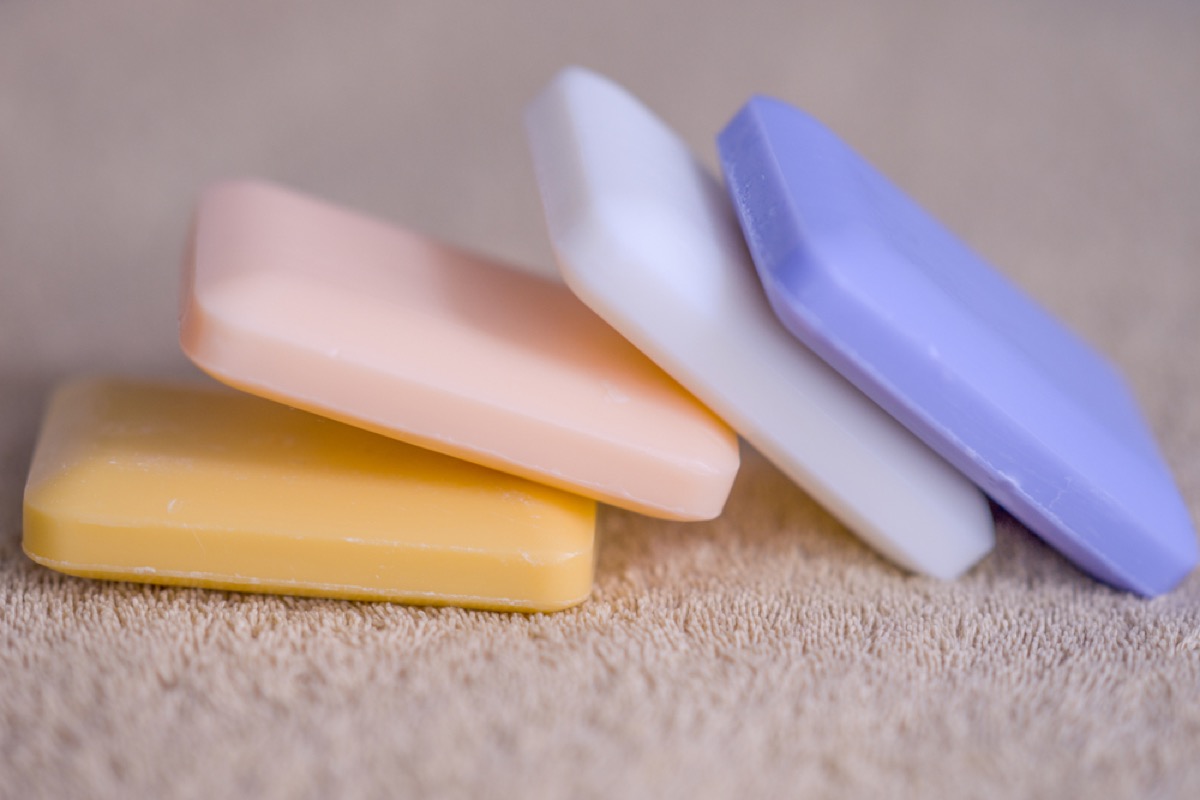
According to DeGarmo, threatening a mouthful of soap after hearing your kid utter a few curse words was standard practice for many parents just a few decades ago. "In today's world of watching what we eat, so to speak, today's parents might find this very unhealthy, on several levels," he says.
Instead, DeGarmo suggests praising children for doing the right thing rather than punishing them harshly—and inappropriately—for those times they let a bad word slip.
20
Letting kids drink from the hose
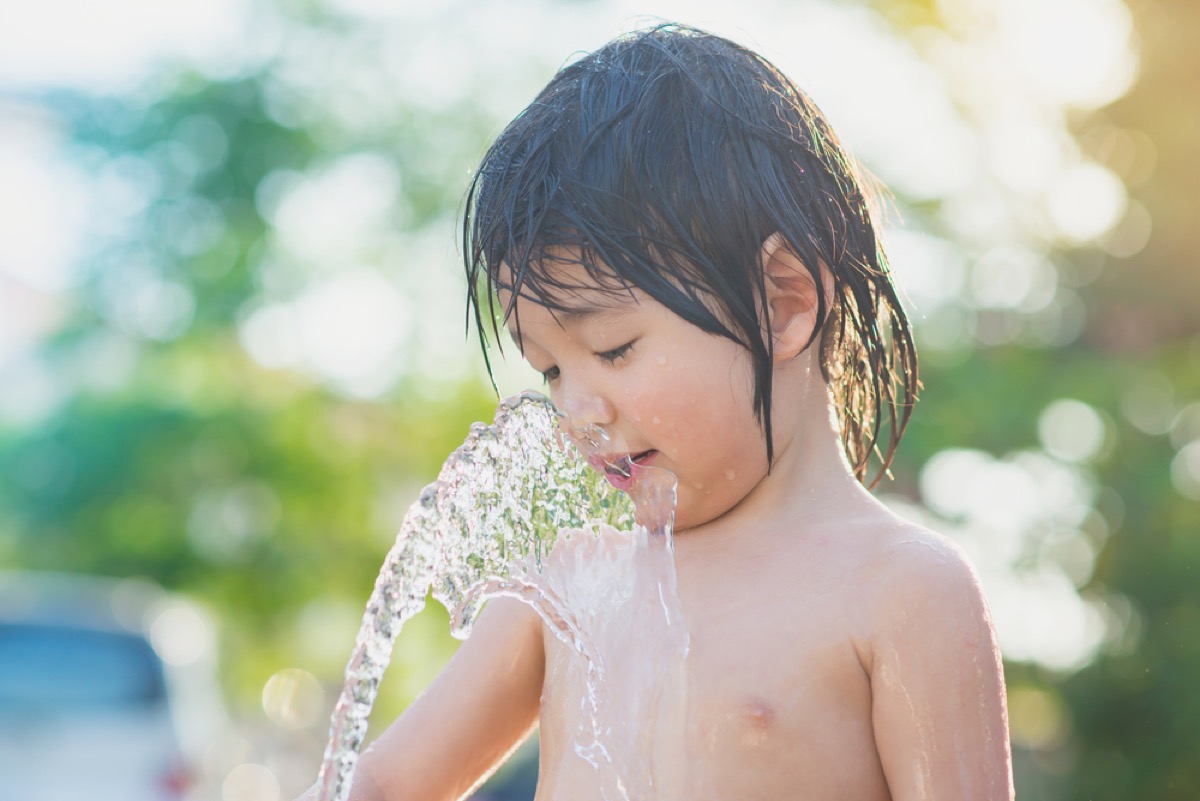
On hot days not so long ago, you could catch kids across the country cooling off with a sip from their backyard hose—something that might alarm people today. "While I often drank from the hose as a child, today's parents now know that the hose contains many different toxic chemicals, including lead, bromine, BPA, and others," says DeGarmo.
His suggestion? "Instead, give each child a container filled with water before they go out to play each day. Call the child inside every 30 minutes for a glass of water. And if you have to have a hose for a child to drink from, switch to a hose made from natural rubber, and let the water run for a few minutes before drinking from it."
21
Allowing kids to play on questionable playground equipment
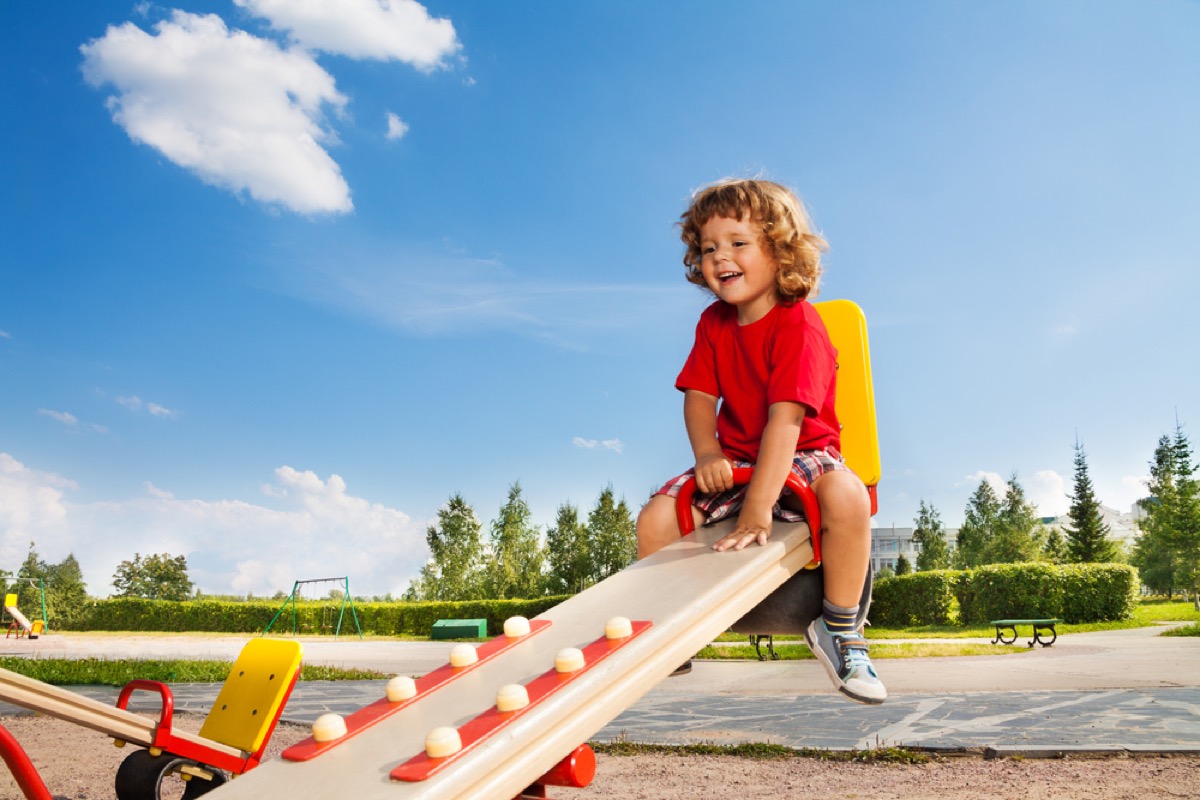
Parks and playgrounds were once full of equipment that would terrify your average parent today—think splintery seesaws ready to crash down on someone's head, hard swings perfect for standing on (and jumping off of at great heights), and metal slides that became furnace-hot in the sun, just to name a few.
But thanks to the implementation of new safety measures put in place by the U.S. Consumer Product Safety Commission, there is now a 50-page Public Playground Safety Handbook that details everything from the angles of seesaws to the minimum diameter of tube slides.
22
Threatening corporal punishment
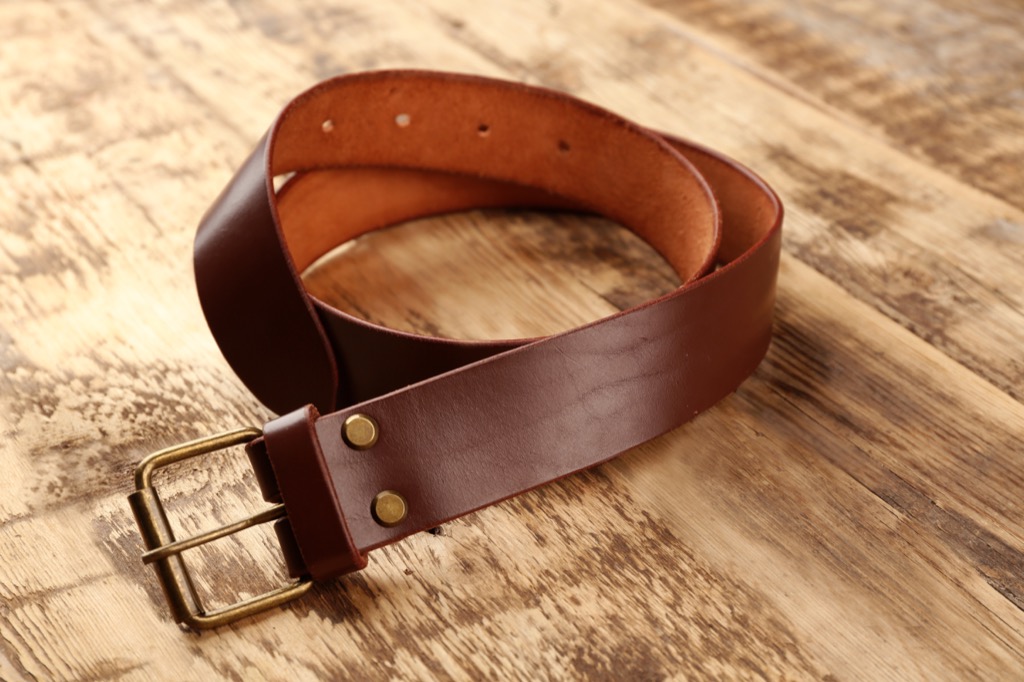
Even parents who never laid a hand on their kids would threaten to do so only a few decades ago. "Some parents didn't actually beat their children; just the threat of the belt was enough to instill fear and compliance," says Weis.
"Today's parents might find this inhumane," DeGarmo agrees. "An alternative might be to place a child in time out, or even time in. … Time in allows the child to be near you, or the adult, instead of away, as in time out."
23
Avoiding being affectionate
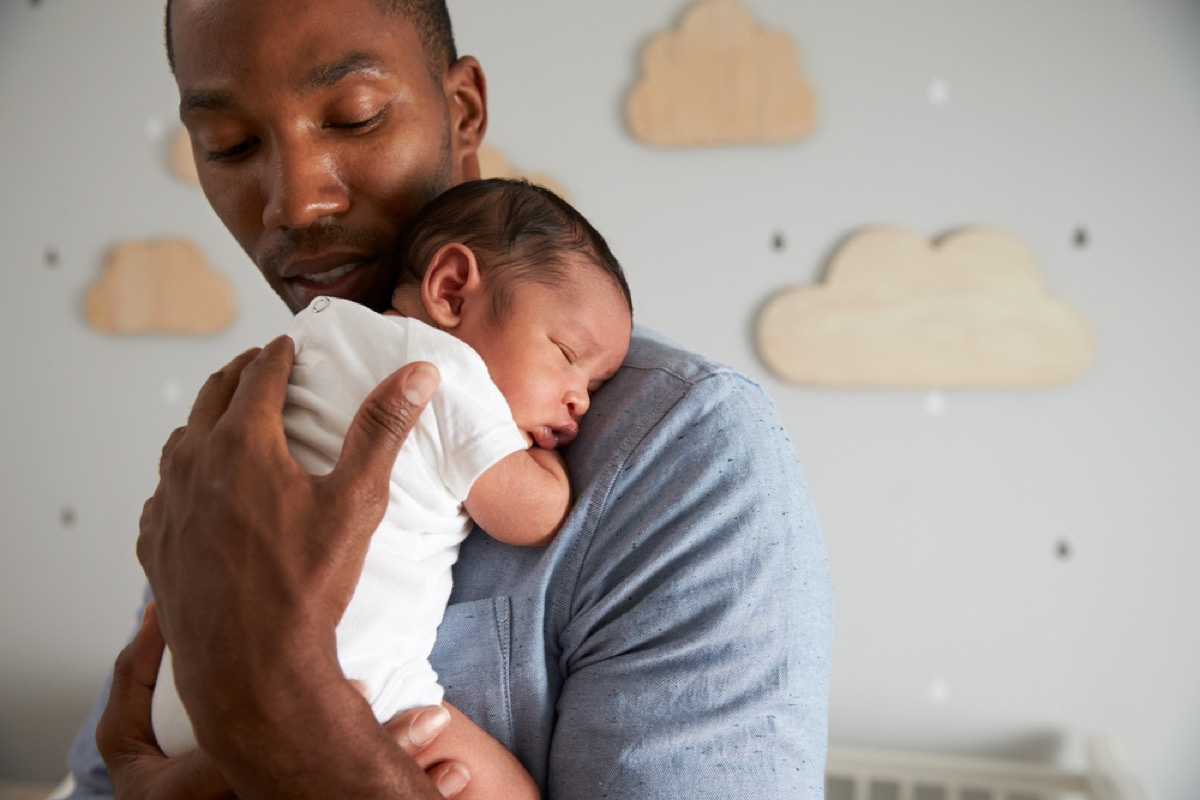
Love to hug and kiss your child? Back in the day, some parents and medical professionals alike would have eagerly chided you for doing so.
For example, in James B. Watson's book Psychological Care of the Infant & Child, published in 1928, he writes, "Never hug and kiss them, never let them sit in your lap." He instead suggests that parents shake hands with their children upon waking. According to Watson, once parents came around to his way of thinking, they would "be utterly ashamed of the mawkish, sentimental way [they had] been handling it." And for more ways parenting is different today, check out these 50 Ways Parenting Has Changed in the Last 50 Years.
To discover more amazing secrets about living your best life, click here to follow us on Instagram!













